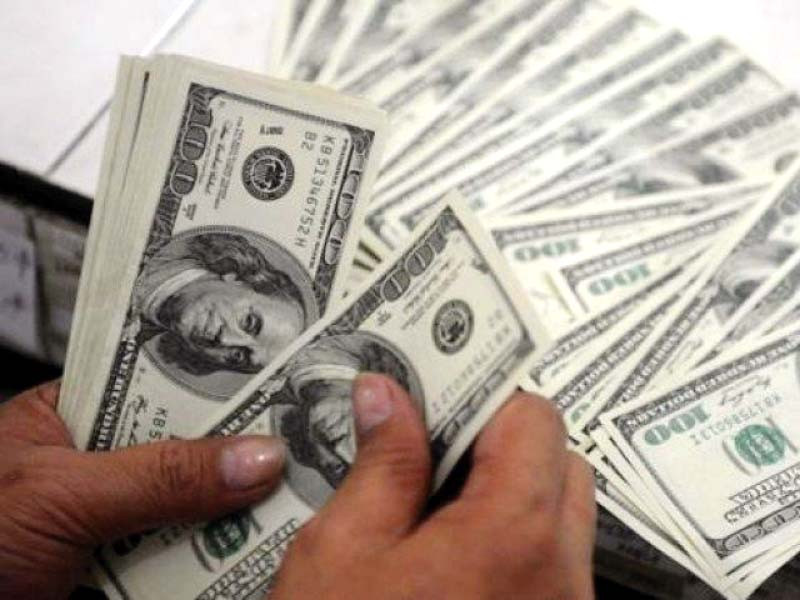
Pakistan, which is desperate to build up its fast depleting foreign exchange reserves, is considering revising the rate of profit on rupee-denominated saving bonds – Naya Pakistan Certificates (NPCs) – designed especially for overseas Pakistanis.
“SBP (State Bank of Pakistan) is engaged with the government to revise PKR (Pakistani rupee)-denominated NPC rates and is hopeful this will be achieved sooner than later,” the central bank said on Friday.
At present, the bank is offering a rate of return in the range of 9.50-11% on the rupee-denominated NPCs depending on the duration of investment from three months to five years.
Non-resident Pakistanis have so far invested a gross $4.6 billion through the Roshan Digital Accounts (RDAs) in a range of assets in the country in the past 22 months till June 30, 2022. This includes investment of $2.9 billion in the certificates (NPCs).
RDA inflows have helped the country maintain its foreign exchange reserves. The recently elevated import payment pressure and foreign debt repayments have led to the depletion of forex reserves to a critically low level of $8.6 billion.
The import payment pressure apparently came to an end on Friday, as the rupee finally made a much-awaited breakthrough. It partly recovered 0.24% (or Rs0.57) to close at Rs239.37 against the US dollar in the inter-bank market, ending a prolonged free fall for 10 consecutive working days.
The domestic currency slumped 13.75% (or Rs31.31) in the prior 10 successive working days to Rs239.94 against the greenback till Thursday (July 28).
“The currency may continue to recover next week if import payment pressure remains moderate,” Pak-Kuwait Investment Company (PKIC) Head of Research Samiullah Tariq said while talking to The Express Tribune.
“Exporters may throw new supplies of dollars into the inter-bank market, as the rupee has bottomed out at around Rs240-245 against the US dollar. (The rupee hit an intra-day low of around Rs245 on Thursday).”
The expected recovery of the rupee would help build the foreign
exchange reserves.
Reuters reported that Pakistan’s Army Chief General Qamar Javed Bajwa has asked “Washington to use its leverage to secure the early release of International Monetary Fund money, Pakistani sources said on Friday, as the South Asian nation struggles to stave off an economic crisis.”
As per recent updates, the IMF was to consider releasing the next loan tranche of $1.2 billion in the last week of August 2022.
The State Bank of Pakistan (SBP) dispelled rumours that overseas Pakistanis had aggressively pulled out their investment from the homeland amid the
economic crisis.
“The apprehension that there have been large outflows from RDA is very misleading and far from reality. There have been outflows, however, these were due to the maturity of investments in NPCs which started in early 2021 and the repatriation of these funds is a key feature of RDA around which the product was designed to garner confidence in the public,” the
central bank said.
“Another reason for the outflows is rising inflation due to which people are accessing their savings to make ends meet. During the last 23 months, only $800 million has
been repatriated.”
Under the RDA initiative, the Roshan Apni Car has also been very successful wherein 1,550 cars have been delivered to the relatives of overseas Pakistanis living in their homeland. Accordingly, the total car financing amounted to Rs8 billion, the central
bank said.
Further, based on NRP’s feedback in our survey conducted in March 2022, the central bank is augmenting RDA products by introducing a complaint management system “Sunwai”, insurance products, pension plans, and Roshan Business Account in the near future.
The expatriates have also been investing in shares at Pakistan Stock Exchange (PSX) and applying for housing finance through RDA.
The RDA initiative was rolled out in September 2020 allowing non-resident Pakistanis (NRPs) access to the Pakistani financial market. As of June 2022, approximately 429,364 Roshan Digital Accounts (RDAs)
The central bank offers a profit in the range of 5.50-7% on US dollar-denominated Naya Pakistan Certificates (NPCs), 5.25-6.50% on pound-based NPCs and offers the rate of return in the range of 4.75-5.75% on euro-denominated NPCs depending upon the duration of investment from three-month to five-year.
Rupee makes history
The rupee had become the second worst performing currency in Asia after Sri Lanka, according to
Topline Securities.
It saw the single largest historical drop of Rs34.50 against the US dollar during the ongoing month of July 2022. In percentage terms, the month saw the second largest drop of 14.40% in rupee in the history of Pakistan, AHL
Research said.
Published in The Express Tribune, July 30th, 2022.
Like Business on Facebook, follow @TribuneBiz on Twitter to stay informed and join in the conversation.


















COMMENTS
Comments are moderated and generally will be posted if they are on-topic and not abusive.
For more information, please see our Comments FAQ